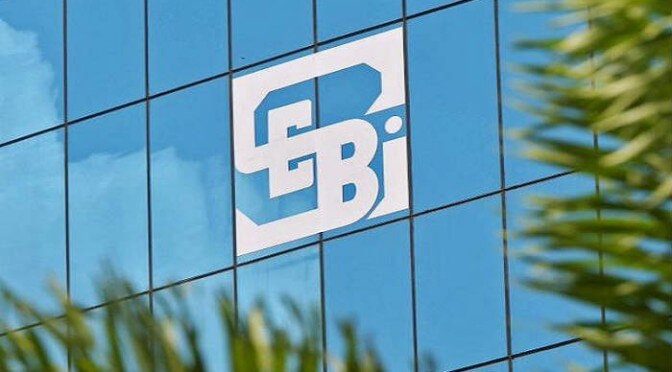 The demand for Economic, Social and Governance (“ESG“) investing has been on the rise across the world in the last five years primarily since investors are becoming increasingly aware of the fact that ESG issues, such as climate change, have a real impact on the long-term value of their investments. The social consequences of the COVID-19 pandemic further accelerated ESG investing. Global sustainable investments are growing rapidly and reached $35 trillion or 36% of the total assets under management in 2020. In India, almost all sustainable investment products have been launched in the last two years, reflecting increasing interest and potential1.
The demand for Economic, Social and Governance (“ESG“) investing has been on the rise across the world in the last five years primarily since investors are becoming increasingly aware of the fact that ESG issues, such as climate change, have a real impact on the long-term value of their investments. The social consequences of the COVID-19 pandemic further accelerated ESG investing. Global sustainable investments are growing rapidly and reached $35 trillion or 36% of the total assets under management in 2020. In India, almost all sustainable investment products have been launched in the last two years, reflecting increasing interest and potential1.
ESG investing also becomes very important in a fast-growing economy like India as it allows the government, investors and companies to build a sustainable business economy. The Securities and Exchange Board of India (“SEBI“) is the securities and capital market regulator in India. SEBI understood the rise and importance of ESG investing in India and thought it necessary to incorporate sustainability reporting by corporates on par with financial reporting. This would ensure the adoption of ESG as a metric to evaluate corporate performance.
SEBI vide Circular No. SEBI/HO/CFD/CMD-2/P/CIR/2021/562 dated 10th May 2021 (“SEBI Circular“) has replaced the earlier Business Responsibility Report (“BRR“) with the new Business Responsibility and Sustainability Report (“BRSR“). BRSR is applicable to the top 1000 listed companies by market capitalisation and is mandatory for the financial year 2022-23 i.e., from 1st April 2022.
The disclosures under the BRSR from listed entities pertain to their performance against the nine principles of the “National Guidelines on Responsible Business Conduct”. Reporting under each principle is divided into essential indicators and leadership indicators. The essential indicators are required to be reported on a mandatory basis while the reporting of leadership indicators is voluntary.
The purpose of BRSR disclosures is to enable investors to make better and informed decisions regarding their investments and their ESG impact. From a company perspective, it will enable them to evaluate their ESG impact and encourage them to look beyond financial parameters alone. Companies will also be able to demonstrate their sustainability performance and objectives thus creating long term value for their stakeholders. Clear ESG reporting and disclosures will facilitate larger investments into companies with higher ESG metrics.
Some of the key disclosures sought in the BRSR are:
- An overview of the entity’s material ESG risks and opportunities, approach to mitigate or adapt to the risks along with financial implications of the same
- Sustainability related goals & targets and performance against the same
- Environmental disclosures cover aspects such as resource usage (energy and water), air pollutant emissions, greenhouse (GHG) emissions, transitioning to a circular economy, waste generated and waste management practices, biodiversity etc.
- Social disclosures covering the workforce, value chain, communities and consumers, as given below:
- Employees/workers: Gender and social diversity including measures for differently-abled employees and workers, turnover rates, median wages, welfare benefits to permanent and contractual employees/workers, occupational health and safety, training etc.
- Communities: Disclosures on Social Impact Assessments (SIA), Rehabilitation and Resettlement, Corporate Social Responsibility etc.
- Consumers: Disclosures on product labelling, product recall, consumer complaints in respect of data privacy, cyber security etc.2
To conclude, ESG investing is very important for an emerging economy like India as it provides an opportunity for all stakeholders to build an economy that is financially inclusive and measured by parameters beyond financial metrics. SEBI is indeed a visionary to facilitate the achievement of the United Nations Sustainable Development Goals and the Paris Agreement on Climate Change by way of mandatorily requiring ESG reporting by Indian companies. One hopes that the applicability of the BRSR reporting is extended to all listed companies and large unlisted companies.
Footnotes
2. SEBI PR18/2021 dated May 10, 2021
In this article, Mini Raman examines the rationale and the disclosure provisions in the new Business Responsibility and Sustainability Report (“BRSR”) introduced by the Securities and Exchange Board of India (“SEBI”). The BRSR reflects the introduction of mandatory ESG reporting in India thus recognizing the need to adopt ESG as a metric to evaluate corporate performance. Currently, the BRSR is mandatory only for the top 1000 listed Indian companies by market capitalization from the financial year 2022-23 onwards.



